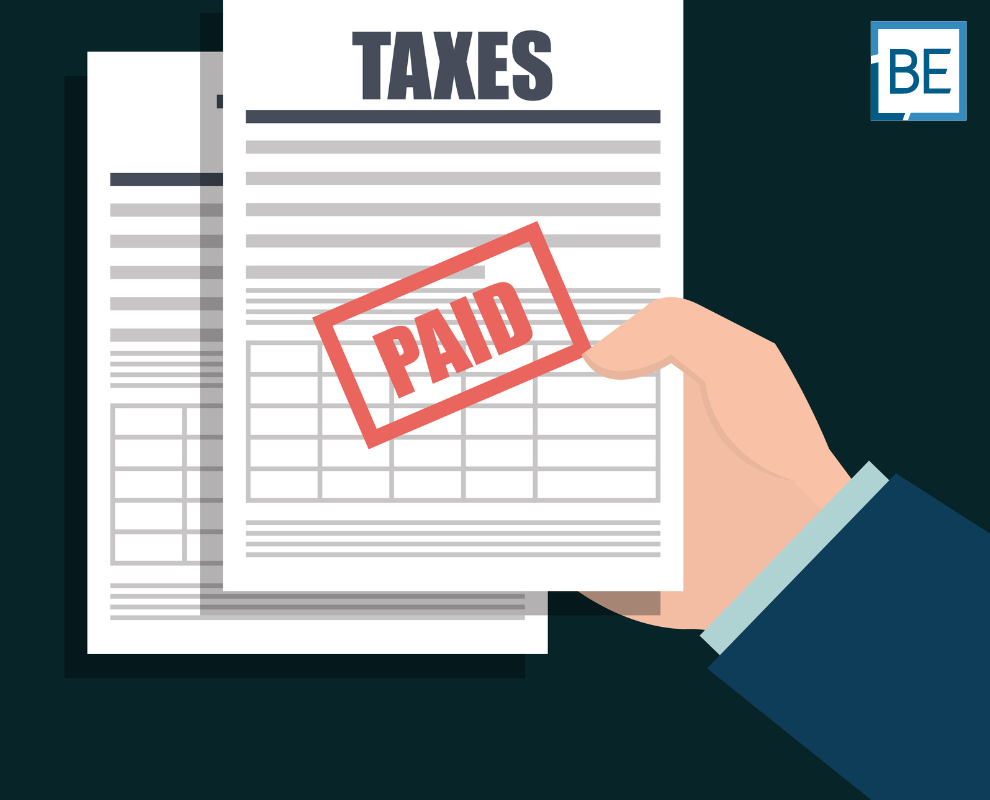Belaws Home ›› Thailand ›› Blog ›› Understanding Withholding Tax in Thailand: What You Need to Know
accounting & secretary
How does withholding tax work in Thailand: What You Need to Know
Thailand is a popular destination for businesses and investors worldwide. However, like any other country, it has its tax laws and regulations that businesses and investors must know. One such tax is the withholding tax, which is a tax that is deducted from the source of income. Withholding tax in Thailand can be complex, especially for those unfamiliar with the country’s tax system. In this blog post, explore withholding tax in Thailand and help you understand what it is, how it works, and what you need to know as a business owner or investor.
Key points
- Withholding tax is a tax that is deducted at the source of income in Thailand.
- Several types of income are subject to withholding tax in Thailand, including employment income, rental income, dividends, interest, royalties, and other income earned by non-residents.
- The withholding tax rate varies depending on the type of income, the residency status of the income recipient, and other factors.
- Businesses and investors must understand the regulations and requirements related to withholding tax to comply with Thai tax laws and avoid penalties.
- Foreign corporations receiving income in Thailand are typically subject to Thai Income Tax despite not conducting business there.
- Withholding tax rates may be reduced if a double taxation agreement (DTA) between Thailand and the foreign country is in question.
- Foreign companies that conduct business in Thailand are subject to a withholding tax on payments made by Thai customers. They must register for Thailand’s corporate income tax and Value-Added Tax (VAT).
What is withholding tax in Thailand?
Withholding tax is a tax that is deducted at the source of income in Thailand. It is a tax withheld or deducted by a person or entity that pays income to another person or entity and then remitted to the Revenue Department on behalf of the income recipient.
The withholding tax system is designed to ensure that the Thai government collects taxes on income earned by non-residents in Thailand and earned by Thai residents that may not be subject to personal income tax.
In Thailand, several types of income are subject to withholding tax, including employment income, rental income, dividends, interest, royalties, and other income earned by non-residents. The withholding tax rate in Thailand varies depending on the type of income, the residency status of the income recipient, and other factors.
Withholding tax is an important aspect of doing business in Thailand. Businesses and investors must understand the regulations and requirements related to withholding tax to comply with Thai tax laws and avoid penalties.
Read more:
What are the rates of withholding tax for an individual in Thailand?
At the end of each tax year, every taxpayer in Thailand must submit a tax computation to the Revenue Department, which should include their total annual income from all sources. The department uses this information to calculate the total personal income tax owed, considering any withholding tax already deducted throughout the year. Depending on the final calculation, an individual may be eligible for a refund or required to make an additional payment.
In Thailand, taxpayers can include their dividend or interest income in their taxable income while earning revenue. For your reference, here are the tax rates for individuals:
| Type of income | WHT Rate |
| Salary and wages | 0-35% |
| Provision of services | 0-35%. 15% if the recipient (foreigner) of the income is not a resident of Thailand. |
| Interest | 15% (of payment), |
| Rent | 5% (of payment), |
| Dividend | 10% (of payment), |
| Royalties | 0-35%. 15% if the recipient (foreigner) of the income is not a resident of Thailand. |
What are the rates of withholding tax for a corporate entity in Thailand?
Unless required by the Revenue Code, a Thai company is not obligated to withhold income tax when making payments to another Thai company.
Read more:
What is the cost of registering a company in Thailand
Nevertheless, certain income sources mandate withholding tax (WHT) payments, including.:
| Type of income | WHT Rate |
| Services provided | 3% of the payment |
| Interest | 1% of the payment paid to a Thai Company, 0% of the payment paid to a Thai Bank |
| Rent | 5% of all rental payments made; or 10% of rental payments made to associations and foundations |
| Income from liberal profession (e.g. laws, arts of healing, engineering, and architecture) | 3% of the payment |
| Income from payments to contractors who provide essential materials besides tools: | 3% of the payment |
| Royalties | 3% of the payment |
| Income paid by Government Agency | 1% of the payment |
| Income paid from the sale of goods | 0% of the payment |
What are the rates of withholding tax for Foreign companies that do not conduct business in Thailand?
Section 40 of the Revenue Code states that a foreign corporation receiving income in Thailand is typically subject to Thai Income Tax despite not conducting business there. Therefore, those making payments to these foreign entities are required to withhold income tax from their payments. Here are the key withholding tax rates based on the type of income received:
| Type of income | WHT Rate |
| Services provided | 15% of the payment |
| Interest | 15% of the payment |
| Dividends | 10% of the payment |
| Rent | 15% of the payment |
| Income from liberal profession (e.g. laws, arts of healing, engineering, and architecture) | 15% of the payment |
| Royalties | 15% of the payment |
However, there is a possibility that the withholding tax rate may be reduced if there is a double taxation agreement (DTA) between Thailand and the foreign country in question (see annexed list of contracting states).
a) Compared to other tax rates, the dividend tax payable is relatively low at 10%. This is due to the Thai government’s tax policy, which aims to avoid double taxation on dividends, as the Corporate Income Tax is already at a rate of 20%.
b) When a foreign company rents property to a Thai company, the latter is generally required to withhold tax at a rate of 15% on rental payments.
c) However, if the foreign company is conducting business in Thailand by renting property to a Thai company, the latter must withhold tax at 5% on the rent payment. Additionally, the foreign company is subject to a corporate income tax of 20% on its net profits from the rental business.
d) In most DTAs (such as the one between Thailand and Germany), the withholding tax rate on interest is reduced from 15% to 0% if the lender is a (German) bank. Similarly, the rate on capital gains is also reduced to 0% if the seller of a Thai company’s stock is a German company.
What are the withholding tax rates for Foreign companies conducting business in Thailand?
Foreign companies that conduct business in Thailand, such as having a branch office (read more: Set Up a Branch Office in Thailand), employment, representative, or intermediary in Thailand and earning income in the country, are typically subject to Thai Income Tax under Revenue Code Section 40. Consequently, payers to such companies are obligated to withhold income tax. The key withholding tax rates based on income categories are outlined below:
| Type of income | WHT Rate |
| Services provided | 5% of the payment |
| Interest | 1% of the payment |
| Dividends | 10% of the payment |
| Rent | 5% of the payment |
| Income from liberal profession (e.g. laws, arts of healing, engineering, and architecture) | 3% of the payment |
| Royalties | 5% of the payment. 3% of the payment if the foreign entity has a permanent branch office in Thailand |
Departmental Instruction No. Paw 8/2528 stipulates that a foreign contractor is deemed to have a permanent branch office in Thailand only if they meet the following conditions:
a) Own an office in Thailand, or
b) Conduct other businesses in Thailand in addition to the contract works, such as buying and selling goods, or
c) Set up a provident fund for the benefit of their employees in Thailand.
Typically, employees and employers establish the provident fund voluntarily to encourage savings so that employees who retire or are dismissed from work can support themselves without relying on state welfare or family.
At least one employer and one employee can establish the provident fund, and the law requires that a Fund Management Company that is neither the employer nor the employee manages the fund. Employee contributions are deducted from wages at a rate not less than 2% but not exceeding 15%.
In comparison, employer contributions are made at a rate not less than the employee’s contribution but not exceeding 15% of wages.
A withholding tax rate of 3% of the payment applies to income from royalties. Regarding the repatriation of profits, a withholding tax rate of 10% applies to payments made from the branch in Thailand to the foreign company.
In addition, foreign companies in Thailand must pay corporate income tax at a rate of 20% on their net profits from doing business in Thailand. Still, they may use the withheld tax as a credit against income tax.
What countries have a double tax agreement with Thailand?
At the time of writing, Thailand has concluded 61 double tax agreements with countries worldwide.
Read more:
Double Tax Agreements in Thailand
| Armenia | Hungary | Poland |
| Australia | India | Romania |
| Austria | Indonesia | Russia |
| Bahrain | Israel | Seychelles |
| Bangladesh | Italy | Singapore |
| Belarus | Japan | Slovenia |
| Belgium | Korea | South Africa |
| Bulgaria | Kuwait | Spain |
| Cambodia | Laos | Sri Lanka |
| Canada | Luxembourg | Sweden |
| Chile | Malaysia | Switzerland |
| China | Mauritius | Taipei |
| Cyprus | Myanmar | Tajikistan |
| Czech Republic | Nepal | Turkey |
| Denmark | Netherlands | Ukraine |
| Estonia | New Zealand | United Arab Emirates |
| Finland | Norway | United States of America |
| Germany | Oman | Uzbekistan |
| Great Britain and Northern Ireland | Pakistan | Vietnam |
| Hong Kong | Philippines |
How do you calculate withholding Tax?
The following are the steps to calculate withholding tax in Thailand:
- Determine the tax rate: The tax rate varies depending on the payment type and the tax status of the recipient. The tax rates range from 0.5% to 15% for most types of payments.
- Calculate the withholding tax amount: To calculate the withholding tax amount, multiply the payment amount by the applicable tax rate. For example, if the payment is 10,000 THB and the tax rate is 5%, the withholding tax amount would be 500 THB (10,000 x 5%). Please note that the amount of Withholding Tax to be deducted is calculated BEFORE deducting anything else, such as VAT.
- Deduct the withholding tax amount: Deduct the withholding tax amount from the payment made to the recipient and remit the tax amount to the tax authority within the specified time frame.
Read more:
What is a withholding tax certificate?
A withholding tax certificate in Thailand, also known as a P.N.D. 3 or P.N.D. 53 form, is a document that confirms the amount of withholding tax deducted from a payment made to a recipient.
The certificate is issued by the payer of the income, such as an employer, a business or an individual, to the recipient of the income. The withholding tax certificate includes details such as the amount paid, the tax withheld, and the tax rate applied.
The withholding tax certificate is an important document for the recipient of the income as it serves as proof of the tax paid and can be used to claim tax credits or refunds and to comply with tax regulations in Thailand.
Different types of withholding tax certificates are issued in Thailand, depending on the type of income received and the tax rate applied. For example, P.N.D. 3 is issued for income subject to a withholding tax rate of 1%, while P.N.D. 53 is issued for income subject to a withholding tax rate of 5% or more.
It’s important to note that the payer of the income is responsible for issuing the withholding tax certificate to the recipient within the specified time frame and in compliance with the rules and regulations set by the Thailand Revenue Department.
How can Belaws help?
You can talk directly to one of our experts for more information about withholding Tax in Thailand.
This article is for information purposes only and does not constitute legal advice.
Our consultations last for a period of up to 1 hour and are conducted by expert Lawyers who are fluent in English, French and Thai.
Consultations can be hosted via WhatsApp or Video Conferencing software for your convenience. A consultation with one of our legal experts is undoubtedly the best way to get all the information you need and answer any questions you may have about your new business or project.
USD 150
Up to 1 hour
Online payment (Paypal or Credit card)
Legal consultation can be conducted in English, French or Thai
Legal consultations are handled by experienced lawyers from the relevant fields of practice
Frequently asked questions
What is withholding tax, and what types of income are subject to it in Thailand?
Withholding tax is a tax that is deducted at the source of income in Thailand. Several types of income are subject to withholding tax in Thailand, including employment income, rental income, dividends, interest, royalties, and other income earned by non-residents.
How do the withholding tax rates vary in Thailand, and what factors affect them?
The withholding tax rate in Thailand varies depending on the type of income, the residency status of the income recipient, and other factors
What are the tax rates for an individual in Thailand?
The tax rates for individuals in Thailand vary depending on the type of income, and the withholding tax rates range from 0% to 35%.
What are the tax rates for a corporate entity in Thailand?
The tax rates for a corporate entity in Thailand vary depending on the type of income, and the withholding tax rates range from 0% to 5%.
What are the withholding tax rates for foreign companies that do not conduct business in Thailand?
The withholding tax rates for foreign companies that do not conduct business in Thailand vary depending on the type of income, and the withholding tax rates range from 10% to 15%.
What are the withholding tax rates for foreign companies conducting business in Thailand?
The withholding tax rates for foreign companies conducting business in Thailand vary depending on the type of income, and the withholding tax rates range from 3% to 15%.
Which countries have a double taxation agreement with Thailand?
At the time of writing, Thailand has concluded 61 double tax agreements with countries worldwide.
How can one calculate withholding tax in Thailand?
To calculate withholding tax in Thailand, one needs to determine the tax rate, calculate the withholding tax amount, and deduct the withholding tax amount from the payment made to the recipient.
What is a withholding tax certificate, and why is it important?
A withholding tax certificate in Thailand is a document that confirms the amount of withholding tax deducted from a payment made to a recipient. It serves as proof of the tax paid and can be used to claim tax credits or refunds and to comply with tax regulations in Thailand.
How can Belaws help with withholding tax in Thailand?
Belaws can provide assistance with various tax-related matters in Thailand, including withholding tax compliance and tax planning.
Related articles
Subscribe today
Subscribe today
To our newsletter for all the latest legal news
in South East Asia, Belaws updates and
special promotions on our services.
To our newsletter today for all the latest legal news in South East Asia,
Belaws updates and special promotions on our services.







